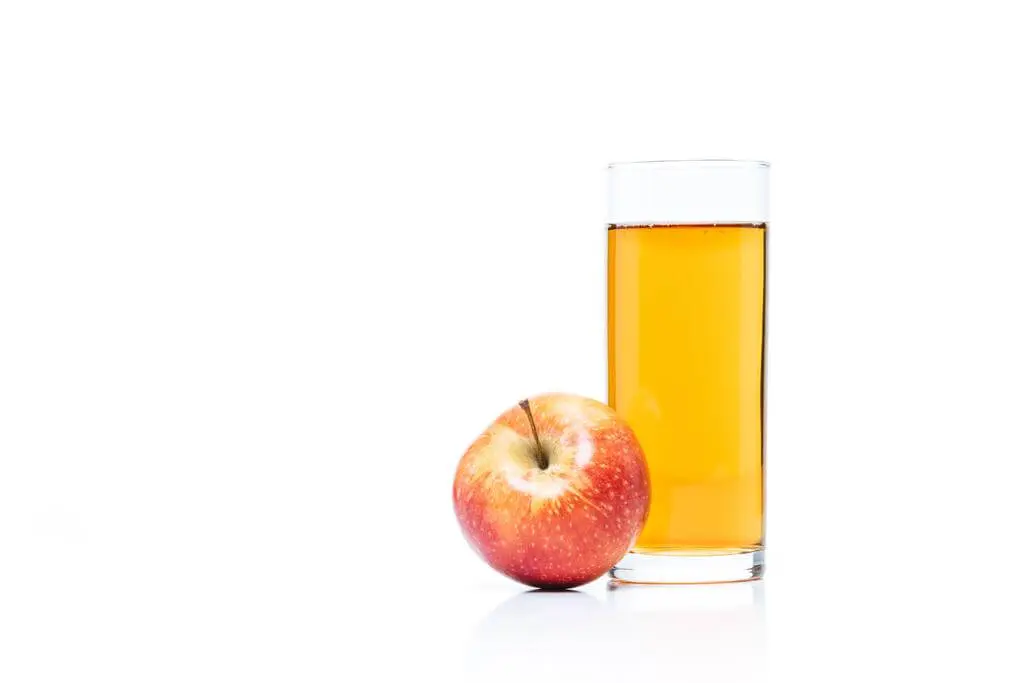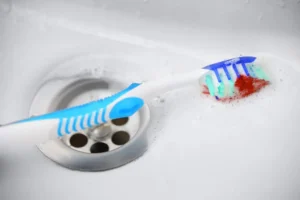Tonsillitis: Causes, Symptoms, and Diagnosis
Tonsillitis is when your tonsils get swollen and inflamed. It’s usually caused by infections, mostly viruses. When a person contracts tonsillitis, their tonsils become red, swollen, and may have a white or yellow coating.
The symptoms of tonsillitis can vary depending on the severity of the infection, but some common symptoms include a sore throat, difficulty swallowing, ear pain, headache, fever, bad breath, and enlarged lymph nodes in the neck. In some cases, tonsillitis can also lead to recurrent ear infections.
Diagnosing tonsillitis typically involves a physical examination of the throat and tonsils by a healthcare professional. They may also take a throat swab to determine the cause of the infection, whether it is viral or bacterial.
If diagnosed with tonsillitis, treatment options vary depending on the underlying cause. Viral tonsillitis usually resolves on its own with plenty of rest and home remedies. However, bacterial tonsillitis may require medical attention and treatment with antibiotics.
Causes
The tonsils play a crucial role in our body’s immune system as they act as a natural filter, protecting us from harmful germs and bacteria. Located at the back of the throat, these almond-shaped glands help to prevent infections by trapping bacteria and other pathogens that enter through the mouth and nose. However, at times, the tonsils can become overwhelmed and overworked, leading to an infection and inflammation known as tonsillitis.
Bacteria or Other Germs
Tonsillitis occurs when the tonsils encounter an influx of bacteria or other germs, causing them to become infected and inflamed. Viral infections, such as the common cold or flu, are often responsible for causing tonsillitis. In some cases, streptococcal bacteria, which cause strep throat, can also trigger the infection.
Environmental Factors
Environmental factors, such as exposure to irritants or allergens, can contribute to the development of tonsillitis.
When the tonsils become infected and inflamed, they may become swollen, red, and painful. This can result in symptoms such as a sore throat, difficulty swallowing, and general discomfort.
It is essential to understand the causes of tonsillitis to prevent its occurrence and seek appropriate medical attention when needed.
Symptoms
Tonsillitis presents with a range of symptoms that can vary in severity.

Inflamed and Swollen Tonsils
One of the most common signs is inflamed and swollen tonsils, which may also have white or yellow spots on them. This can cause discomfort and pain, leading to a severe sore throat.
Difficulty Swallowing
Difficulty swallowing is another symptom that often accompanies tonsillitis, making it challenging to eat and drink normally. Some individuals may also notice a scratchy voice, which can make speaking uncomfortable.
Bad Breath
In addition to these primary symptoms, tonsillitis can also manifest in other ways. Many people with tonsillitis experience bad breath, which is caused by the bacterial or viral infection present in the throat.
Chills and Fever
Chills and fever may also occur, indicating the body’s immune response to the infection. Headaches, stomach aches, and a tender jaw and neck are not uncommon during tonsillitis episodes.
Decrease in Appetite
A decrease in appetite is often observed due to the pain and discomfort associated with the condition.
Recognizing these symptoms is crucial in seeking proper medical attention and receiving an accurate diagnosis.
If you or someone you know is experiencing inflamed and swollen tonsils, severe sore throat, difficulty swallowing, a scratchy voice, bad breath, or any of the other symptoms mentioned, it is advisable to consult a healthcare professional for evaluation and appropriate treatment.
Treatment
When it comes to tackling tonsillitis, there are various medical treatment options and home remedies available.

Pain Relievers
Over-the-counter pain relievers have been proven to be effective in providing relief for throat pain and reducing fever.
Antibiotics
When it comes to treating tonsillitis caused by a bacterial infection, antibiotics are often prescribed. Antibiotics are medications that fight and kill bacteria in the body. The most common antibiotic prescribed for tonsillitis caused by group A streptococcus, a type of bacteria, is penicillin.
Penicillin
Penicillin is a commonly prescribed treatment for bacterial tonsillitis. It is important to follow your healthcare provider’s instructions and finish the full course of antibiotics, even if you start feeling better. This helps to eliminate all bacteria causing the infection and reduces the risk of recurrence.
Side Effects
While antibiotics are generally safe and effective, they can sometimes have side effects. These can include upset stomach, diarrhea, or allergic reactions such as rash or itching. If you experience any unusual or severe side effects, it is important to contact your healthcare provider.
Take Medication as Directed by Your Healthcare Provider
To get the most benefit from antibiotics, it is essential to follow your healthcare provider’s instructions and take the medication as directed. Skipping doses or stopping treatment early can lead to the development of antibiotic-resistant bacteria and make future infections more difficult to treat.
If you suspect you have tonsillitis caused by a bacterial infection, it is important to seek medical attention. Your healthcare provider can determine the cause of your tonsillitis and prescribe the appropriate antibiotic if necessary.
Tonsillectomy
In severe cases or recurrent tonsillitis, a doctor may recommend a surgical procedure called a tonsillectomy to remove the tonsils.

What is Tonsillectomy?
A tonsillectomy is a surgical procedure that involves the removal of the tonsils. It is typically recommended for individuals who have chronic or recurrent tonsillitis, which is characterized by frequent episodes of inflamed and infected tonsils.
Chronic tonsillitis refers to a persistent inflammation of the tonsils, while recurrent tonsillitis involves multiple episodes of tonsil infection within a year.
How Does It Work?
During a tonsillectomy, the patient is put under general anesthesia, and the tonsils are removed using a scalpel or another surgical instrument. The procedure usually takes about 30 minutes to an hour, and most patients can go home the same day.
What Are the Potential Side Effects?
Common side effects include throat pain, difficulty swallowing, bad breath, and a scratchy throat.
It is also important to note that a tonsillectomy is usually not recommended for cases of acute tonsillitis, which is a temporary infection caused by bacteria or a viral infection.
Acute tonsillitis can often be managed with rest, over-the-counter pain relievers, and home remedies such as gargling with warm salt water or drinking warm fluids.
If you or your child experience chronic or recurrent tonsillitis, it is important to consult with a healthcare professional to determine the best course of treatment. They may recommend a tonsillectomy as a potential solution to provide long-term relief from the condition.
Home Remedies
There are also several home remedies that can provide relief from tonsillitis symptoms.
Gargling with Salt Water
Gargling with warm salt water can help reduce inflammation and soothe a scratchy throat, while warm fluids like tea with honey or warm water with a teaspoon of salt can also provide relief.
Drink Plenty of Fluids
Drinking plenty of fluids and getting plenty of rest are important for supporting the immune system and promoting recovery.
Avoid Spicy Foods
Avoiding spicy foods and irritants can help prevent further irritation of the inflamed throat.

It is important to consult with a healthcare professional to determine the most suitable treatment approach for your specific case of tonsillitis.
Home Remedies for Tonsillitis Can be Used by Individuals of All Ages, Including Children and Adults
Tonsillitis can be a painful condition, causing throat discomfort and difficulty swallowing for both children and adults. While medical treatment, such as antibiotics, is often necessary for bacterial tonsillitis, there are also several home remedies that can help alleviate symptoms and promote faster recovery.

These remedies can provide relief from throat pain, reduce inflammation, and support the immune system.
It is important to note that home remedies should not replace medical treatment, but they can be used in conjunction to enhance healing.
Here are some effective home remedies for tonsillitis in children and adults.
1. Make sure to get an adequate amount of sleep at home
One of the most important remedies for tonsillitis is to stay home and get plenty of sleep. Sleep is essential for our overall health and plays a crucial role in boosting the immune system.
When we are well-rested, our bodies are better equipped to fight off infections, including tonsillitis. Getting a good night’s sleep allows the body to heal and recover more quickly.

In addition to getting enough sleep, it is also important to take preventive measures when caring for someone with tonsillitis. This includes washing your hands frequently to prevent the spread of bacteria or viruses that may cause tonsillitis.
By staying home and getting plenty of sleep, you can help reduce the severity and duration of tonsillitis symptoms. If symptoms persist or worsen, it’s important to seek medical attention. Your healthcare provider can provide further guidance on treatment options and help prevent recurrent episodes of tonsillitis.
Remember, staying home and getting plenty of sleep are simple yet effective ways to promote healing and prevent the spread of tonsillitis. Take care of yourself and prioritize rest to ensure a speedy recovery.
2. Gargle with saltwater
Gargling with saltwater is a simple and effective home remedy to alleviate tonsillitis symptoms and promote healing. This natural remedy helps reduce inflammation and soothes the throat, providing relief from pain and discomfort. To create an effective gargling solution, add 1 teaspoon of salt to 8 ounces of warm water.
How to Gargle
To gargle with saltwater, take a small sip of the solution and tilt your head back slightly. Gently swish the saltwater in the back of your throat for about 1-2 minutes, making sure to reach the tonsils. Then, spit out the solution. Repeat this process every hour for optimal results.
What It Does
Gargling with saltwater helps to cleanse the throat and remove any bacteria or viruses causing the infection. The saltwater solution creates an environment that is inhospitable for these microorganisms, thereby reducing their growth and promoting healing.
To Note
It is important to note that while gargling with saltwater can provide relief from tonsillitis symptoms, it is not a substitute for medical treatment. If symptoms persist or worsen, it is advisable to seek medical attention.
Your healthcare provider can provide further guidance on treatment options and help prevent the recurrence of tonsillitis episodes. Remember to consult your doctor before trying any home remedies.
3. Use a cool-mist humidifier
A cool-mist humidifier is a beneficial tool for treating tonsillitis and can provide much-needed relief from the symptoms associated with this condition. Tonsillitis often causes irritation in the throat, leading to discomfort and difficulty in breathing. Using a cool-mist humidifier adds moisture to the air, creating a soothing and humid environment that helps to alleviate these symptoms.
By releasing a fine mist of water into the air, a cool-mist humidifier helps to hydrate the throat and reduce irritation. The added moisture helps to soothe the inflamed tonsils, making it easier to swallow and reducing the pain associated with tonsillitis.
Additionally, the humidifier can help to prevent the throat from becoming dry, which can further aggravate the condition.
4. Other Methods
There are other methods that can be employed to add moisture to the air. For instance, taking a hot shower and inhaling the steam can provide temporary relief from throat irritation.
Drinking plenty of fluids and staying hydrated throughout the day also helps to maintain moisture levels in the throat.
5. Take over-the-counter medicines for tonsillitis
When it comes to managing tonsillitis symptoms, over-the-counter (OTC) medicines can provide relief and make the recovery process more comfortable.
There are several options available that can help alleviate throat pain, reduce inflammation, and soothe the discomfort associated with tonsillitis. Here are some of them.
Pain Relievers
Pain relievers such as acetaminophen (Tylenol) or nonsteroidal anti-inflammatory drugs (NSAIDs) like ibuprofen (Advil, Motrin) can help reduce pain and fever caused by tonsillitis.
However, it is important to follow the recommended dosage and not exceed the stated limits. It is also essential to consult a healthcare professional before giving any medication to children.
Cold and Flu Medicines
Cold and flu medicines that contain decongestants and antihistamines can help alleviate nasal congestion and post-nasal drip, which are often associated with tonsillitis. These medicines may also provide temporary relief from other cold symptoms, such as coughing and sneezing.
Lozenges
Lozenges and throat sprays can also be helpful in soothing throat irritation and providing temporary relief.
Lozenges with menthol or eucalyptus can help numb the throat and reduce discomfort. Some lozenges may also contain ingredients like benzocaine or phenol, which have mild anesthetic properties.
Follow Instructions
When considering OTC medications for tonsillitis, it is important to read the labels carefully and follow the instructions. Be aware of precautions and age restrictions. For example, aspirin should not be given to individuals under 20 years old due to the risk of Reye’s syndrome. Additionally, excessive intake of acetaminophen can be harmful, so be cautious with dosing.
If you are unsure about which OTC medicines to choose or have any concerns, it is always a good idea to consult a healthcare professional or call a nurse helpline for guidance. They can provide advice on suitable medications and dosage instructions tailored to your specific situation.
6. Avoid cigarette smoke
Avoiding cigarette smoke is crucial in the treatment of tonsillitis. Cigarette smoke contains harmful chemicals that can weaken the immune system and irritate the tonsils, exacerbating the condition and prolonging the healing process.

Exposure to cigarette smoke can compromise the immune system, making it harder for the body to defend against infections, including the bacteria or viruses responsible for tonsillitis. This can result in more frequent and severe episodes of tonsillitis, accompanied by longer recovery periods.
Furthermore, repeated exposure to cigarette smoke can also increase the risk of complications associated with tonsillitis. Prolonged inflammation and irritation of the tonsils can lead to chronic tonsillitis, which may require surgical intervention such as tonsillectomy.
Surgery is typically recommended if tonsillitis becomes recurrent or causes significant breathing or swallowing difficulties.
7. Other preventive measures
Other preventative measures can help manage and reduce the risk of tonsillitis.
Increasing intake of soups and broths can provide nourishment and hydration, while consuming foods rich in zinc and probiotics can support a healthy immune system.
Using a humidifier can help moisturize the air, reducing throat irritation.
It is also important to maintain distance from individuals with tonsillitis, practice good hygiene habits such as regular handwashing, and consider quitting smoking if you are a smoker.
Suggestions for Food and Beverage Consumption While Experiencing Tonsillitis
When dealing with tonsillitis, it is important to pay attention to what you eat and drink. Consuming certain foods and beverages can help soothe your throat and support your immune system during the recovery process.
Warm Fluids
Opt for warm fluids like herbal tea with honey, warm water with a teaspoon of salt, or broths that will help relieve throat pain and keep you hydrated.
Spicy Foods
It is advisable to avoid spicy foods, as they can irritate the already inflamed throat.
Cold or Acidic Drinks
Avoiding the consumption of cold or acidic drinks may help to avoid any further aggravation of the condition.
Diet
It is essential to prioritize a balanced diet and incorporate foods rich in zinc and probiotics to boost your immune system.
Be mindful of your diet and make choices that will aid in a speedier recovery from tonsillitis.
Do Warm Drinks Help With Tonsillitis?
Warm liquids can be highly beneficial for individuals suffering from tonsillitis. Whether it be tea with honey, soothing soups, or even warm water, these liquids can provide relief and aid in the healing process.
Tea with honey is a popular choice as it combines the soothing properties of warm liquids with the antibacterial properties of honey. This combination can help alleviate throat pain and reduce inflammation in the tonsils. Additionally, the warmth of the tea can provide comfort and help to relax the throat muscles.

Soups, especially broths, are another excellent option for individuals with tonsillitis. These warm liquids not only provide hydration, but they also supply much-needed nutrients and vitamins to the body. Furthermore, the warmth can help to soothe the throat and alleviate discomfort.
While warm liquids are highly recommended, it’s important to note that cold beverages may also be helpful. Cold drinks, such as juice, can numb the throat and provide temporary relief from the pain associated with tonsillitis. However, it’s best to avoid acidic or citrus juices that may irritate the throat further.
Can You Eat Frozen Foods When You Have Tonsillitis?
Frozen foods like popsicles can offer temporary relief for individuals with tonsillitis by numbing the throat and alleviating the pain associated with the condition. The coldness also helps reduce inflammation in the tonsils, providing additional comfort.

In addition to popsicles, other ice-cold foods like ice cream or frozen yogurt can also offer similar relief. These cold treats can help soothe the sore throat and provide a refreshing sensation. However, it’s essential to avoid flavors that are acidic or citrus-based, as they may irritate the throat further.
While frozen foods can provide momentary relief, it’s important to maintain a balanced diet to aid in the recovery process. Once the acute symptoms of tonsillitis subside, it is recommended to return to healthy eating habits. Consuming a balanced diet rich in fruits, vegetables, lean proteins, and whole grains can help strengthen the immune system and prevent the recurrence of tonsillitis.
Is Juice Good for Tonsillitis?
When dealing with tonsillitis, it’s important to choose your beverages wisely. While juice can be a good source of energy and hydration, not all types of juice are suitable for a sore throat. The acidity in certain juices can further irritate the throat and worsen the symptoms of tonsillitis.
To ensure you’re making a throat-friendly choice, opt for low acidic juices such as apple, pear, and peach juices. These options provide hydration without causing additional discomfort. It’s best to avoid citrus-based juices like orange or grapefruit, as they can be too acidic for a sensitive throat.

Additionally, if you’re experiencing fever or dehydration due to tonsillitis, electrolyte replacement beverages like Pedialyte or Gatorade can be considered. These beverages help replenish electrolytes and maintain hydration levels in the body.
Remember to consult with your healthcare professional for personalized advice on what beverages are best for your specific condition. Staying hydrated is crucial when dealing with tonsillitis, and choosing the right juice or electrolyte replacement can contribute to your overall comfort and recovery.
Can Consuming Hard Foods Help Tonsillitis?
When it comes to tonsillitis, hard foods are not your best choice. Hard foods can aggravate the already irritated throat and make it harder for you to swallow.
It’s important to avoid certain types of foods when you have tonsillitis. For example, crunchy snacks like chips can scratch and further irritate your throat. Cereal and toast, although seemingly innocent, can be rough and abrasive on your already sensitive tonsils. Raw vegetables can be difficult to chew and may cause discomfort when swallowing.
Instead, opt for soft and soothing foods that won’t irritate your throat. Warm soups, smoothies, and mashed foods are good options. These foods are easier to swallow and can provide some relief from the discomfort caused by tonsillitis.
Remember to drink plenty of fluids to stay hydrated, but avoid cold or acidic beverages as they can irritate your throat further. Stick to warm, soothing liquids like herbal tea with honey or warm water with a teaspoon of salt.
Do Spicy Foods Help With Tonsillitis?
Spicy foods are not recommended for individuals with tonsillitis due to their potential to worsen symptoms and irritate already infected tonsils. Consuming spicy foods can exacerbate these symptoms.
Spices like chilies, hot sauces, and peppers contain capsaicin, which gives them their distinct heat. When consumed, capsaicin can irritate the sensitive lining of the throat, leading to increased pain and discomfort for those with tonsillitis.
To promote healing and alleviate symptoms, it is advisable to opt for bland and soft foods that are gentle on the inflamed throat. Instead of spicy foods, consider consuming warm soups, smoothies, mashed foods, and other soothing options that are easier to swallow and do not aggravate the tonsils.

By avoiding spicy foods, individuals with tonsillitis can minimize irritation and allow their bodies to heal more effectively. It is essential to prioritize comfort and ensure that the foods and liquids consumed provide relief rather than exacerbating the symptoms of tonsillitis.
Guidelines for When to Contact a Doctor
If you are experiencing symptoms of tonsillitis, it is important to know when it is necessary to seek medical attention. While mild cases of tonsillitis can often be managed at home with rest and home remedies, there are certain symptoms and situations that warrant contacting a doctor.
If you have a sore throat accompanied by a fever, it is advisable to consult a healthcare professional. A sore throat lasting longer than 48 hours, especially if it is severe and persistent, should also be a cause for concern. Difficulty swallowing, extreme tiredness, and difficulty breathing are all symptoms that require immediate medical attention.

Additionally, if you notice significant drooling, it is important to reach out to a doctor. This could indicate a potentially serious complication related to the tonsillitis.
In these situations, it is best to seek medical advice to determine the underlying cause of the symptoms and to receive appropriate treatment. A healthcare professional will be able to evaluate your condition, recommend the necessary tests or medications, and provide guidance on how to manage your tonsillitis effectively.
Remember, it is always better to err on the side of caution and seek medical attention if you are unsure about the severity of your condition.





